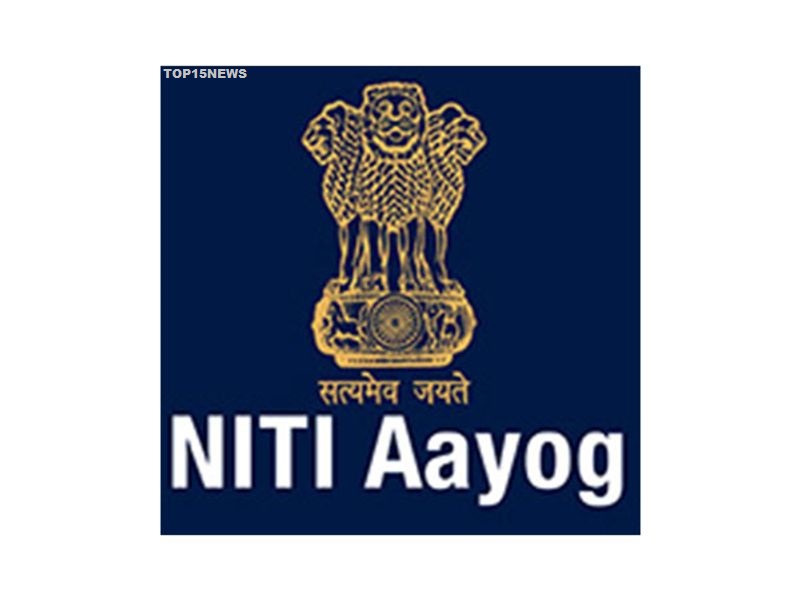NITI Aayog suggests a comprehensive 7-point policy roadmap to significantly boost India’s position in the global chemicals sector. The goal: increase India’s share in global chemical consumption from the current 4% to 12% by 2040.
This strategy was outlined in a detailed report released on July 7, 2025, highlighting the potential of the Indian chemical sector to become a global growth engine if supported by progressive reforms.
Why NITI Aayog Suggests New Chemical Policy Framework
NITI Aayog suggests that the chemicals sector, which contributes over $180 billion to India’s economy, is still operating below its full potential. With global shifts toward China + 1 supply diversification, India can step in as a reliable manufacturing hub for chemicals and petrochemicals.
The current policy framework lacks the agility, R&D ecosystem, and scale needed to compete globally. That’s why NITI Aayog suggests a recalibration — a focused, multi-dimensional push through 7 key policy levers.
NITI Aayog Suggests These 7 Core Strategies
Here’s a detailed look at the 7 areas where NITI Aayog suggests policy focus:
1. Ease of Doing Business for Chemicals Sector
NITI Aayog suggests simplifying licensing, reducing compliance burden, and ensuring faster clearances for establishing chemical manufacturing plants.
2. Investment in R&D and Innovation
To stay competitive in specialty and green chemicals, NITI Aayog suggests incentivizing public-private R&D investments, and tax benefits for IP generation in the sector.
3. Export-Led Growth Strategy
NITI Aayog suggests setting up dedicated Chemical Export Zones with plug-and-play infrastructure and reduced tariffs to encourage exports.
4. Fiscal Incentives and Infrastructure
NITI Aayog suggests extending PLI-type incentives and enhancing chemical logistics hubs with multi-modal transport and storage facilities.
5. Skilling and Workforce Modernization
NITI Aayog suggests creating sector-specific skill councils and specialized courses in collaboration with IITs, NITs, and chemical industry players.
6. Focus on Green and Sustainable Chemicals
To align with ESG goals, NITI Aayog suggests mandatory green certifications, incentives for bio-based chemicals, and water-efficient production technologies.
7. Stronger Industry-Academia Linkages
NITI Aayog suggests setting up Innovation Clusters to connect research institutions with industrial R&D to fast-track commercialization of innovations.
Current Scenario: Why NITI Aayog Suggests a Push
India’s chemical industry ranks 6th in the world, yet lags behind China and the U.S. in scale, specialization, and exports. At present:
- Contributes about 7% to GDP
- Employs over 2 million people directly
- Exports chemicals worth $48 billion annually
- Imports specialty chemicals and key intermediates worth $30 billion+
Given this backdrop, NITI Aayog suggests urgent structural support to turn India from a net importer to a net exporter and innovation leader.
NITI Aayog Suggests Global Benchmarking
To compete globally, NITI Aayog suggests India must learn from chemical powerhouses like:
- Germany – known for integrated chemical clusters and BASF-style conglomerates
- South Korea – heavy government R&D investment in green chemicals
- USA – strong patent ecosystem and agile start-up culture in chemicals
NITI Aayog suggests adopting similar models tailored to Indian conditions.
Government Reaction: NITI Aayog Suggests, Ministries Respond
Following the release of the report where NITI Aayog suggests the policy revamp, ministries including Chemicals & Fertilizers, Commerce, and Finance are reportedly reviewing the roadmap.
Initial response suggests the 2026 Union Budget may include:
- Special incentives for Green Chemical Zones
- Tax holidays for chemical R&D parks
- Funding allocation for public-private skilling programs

The 2040 Vision: NITI Aayog Suggests Ambitious But Achievable Targets
If implemented effectively, the reforms NITI Aayog suggests could help India achieve:
- 3x increase in chemical sector size to over $800 billion
- 4x rise in chemical exports by 2040
- Job creation for over 10 million professionals
- Emergence of India as a trusted chemical supplier globally
Industry View: Why Experts Support What NITI Aayog Suggests
Industry leaders and economists have praised the initiative:
“The vision that NITI Aayog suggests is not only timely but critical. Without such reforms, we risk losing the global opportunity in chemicals.”
— Dr. Vinod Gupta, President, Indian Chemical Council “The 7 strategies that NITI Aayog suggests show a deep understanding of ground realities. Execution will be the real test.”
— Anita Rao, Senior Economist, CII
IMF and Niti Aayog: India becomes the 4th largest economy in the world

